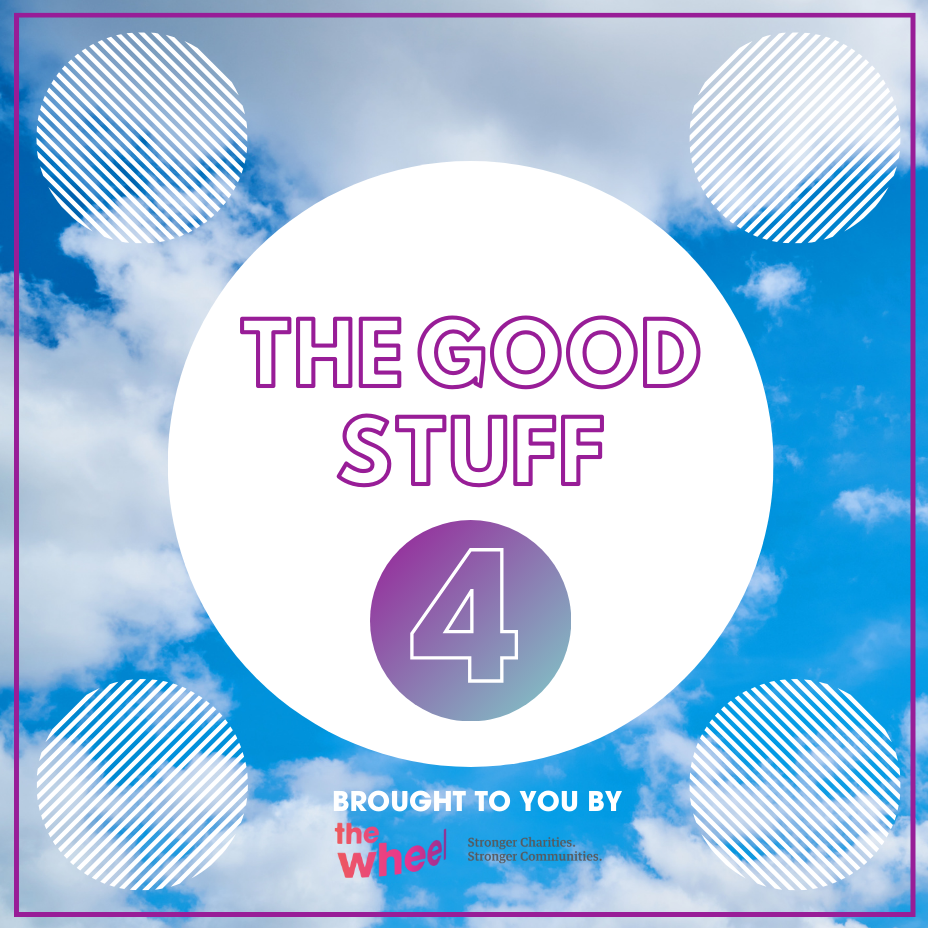The Problem of Parity - Season 4 Ep 1

This season, we’ll be chatting with representatives from a broad range of organisations about some of the more difficult challenges currently being faced by our sector, and about some of the amazing people who take on those challenges every day in order to help bring us all towards a stronger and more vibrant civil society.
This year, we’ve seen the community and voluntary sector pummeled by an ever-worsening recruitment and retention crisis, pay disputes, ongoing geopolitical and domestic economic pressures, and increases in demand across the board. Most particularly, the plight of organisations providing fundamental social and community health services under Section 10 of the Housing Act, 1988, Section 39 of the Health Act, 2004, and Section 56 of the Child and Family Agency Act, 2013, has become painfully obvious to all.
Many of these organisations have found themselves at risk of total collapse this past year due to widening pay disparity and a resulting exodus of skilled and experienced staff. We’ve seen organisations who provide care which is integral to the wellbeing of Irish civil society, lose almost 50% of their experienced workforce. And severe shortfalls in the provision of care for some of our most vulnerable is becoming more and more common, as noted in analyses like the Ombudsman for Children’s Office (OCO) recent Nowhere to Turn Report.
Here at The Wheel, we have campaigned tirelessly—together with partners and members throughout the Irish CV sector—to draw attention to these interconnected crises. Our Pre-Budget submission for Budget 2024 highlighted twelve key asks reflecting the expressed needs of our members. Indeed, in the weeks immediately preceding the budget, these frustrations culminated in an almost unanimous vote in favour of an all-out strike among people working across the section 39, 56, and 10 spectrum. On the 6th of October, we joined a coalition of eight voluntary health and social care service providers and charity sector representative bodies in publishing an open letter to the Taoiseach requesting his intervention in order to address the very real concerns of those planning to strike.
On Tuesday October 8th, with our entire sector nervously looking on, Budget 2024 was announced. And while we welcomed the increase to the VAT Compensation scheme for which many of us had been campaigning for years, ultimately, the details of this year’s budget did little to allay the anxieties of those looking to government to shore up a sector which is often referred to as a most valuable partner to government itself.
Luckily for all those involved, negotiations undertaken at the Workplace Relations Commission in the eleventh hour successfully averted strike action. But, given the increasingly straightened circumstances that continue to affect large swathes of our sector, how can charity, voluntary, and community organisations hope to keep up the levels of vital services that have hitherto provided to us all?
Over the next three episodes, we’ll certainly take the time to look at some of the not-so-good stuff affecting our members as 2023 draws to a close. But, more importantly, we’ll try to focus on the ways in which the people who keep our sector going—those who put their all into keeping civil society afloat—are managing to make things work and, ultimately, keep the lights on.
In our first episode this season, we discuss one of the biggest issues facing our sector today. The ever-widening pay gap between thousands of workers in the charity and voluntary sector—particularly those employed in Section 39, 56, and 10 organisations—and their counterparts in organisations directly funded by the state, has had a debilitating impact on the efficacy and viability of many health and social service providers across the country.
The collapse, in July, of talks at the Workplace Relations Commission was greeted with a widespread sense of frustration, and ultimately led to balloting on strike action.
The strike itself was only recently called-off pending conversations with union membership. And, while government has committed to some initial pay increases and the beginning of a process aimed at addressing key impasses, the conditions of people working in the sector have yet to be significantly improved.
How then can we, as a unified sector, act to address these complexities, and, perhaps just as importantly, how can we communicate the need for improved conditions for staff and service users to the wider public?
On this episode, we talk with Dr. Shana Cohen, CEO of the Think-Tank for Action on Social Change, or TASC, about a recent study produced in conjunction with The Wheel. The Future of Public Service Delivery by the Community & Voluntary Sector, analyses staffing, funding, and the demand for services among hundreds of Section 39, 56, and 10 organisations who deliver essential public services countrywide in diverse areas like health, disability, family support, childcare, eldercare, homelessness, and addiction.
Shana chats with The Wheel’s own Campaigns Manager, Dr. Emily Bourke, about her work in bringing The Wheel’s 2024 Pre-Budget Submission, “A Budget for Civil Society”, to fruition, as well as how our submission encapsulates many of the key concerns shared by our members.
And in our new "Members' Voices" section, we hear from Sarah Reeves of Depaul Ireland about the impact that the recruitment and retention crisis has had on the day-to-day running of the organisation as well as how these complexities make it difficult to plan for an uncertain future.
